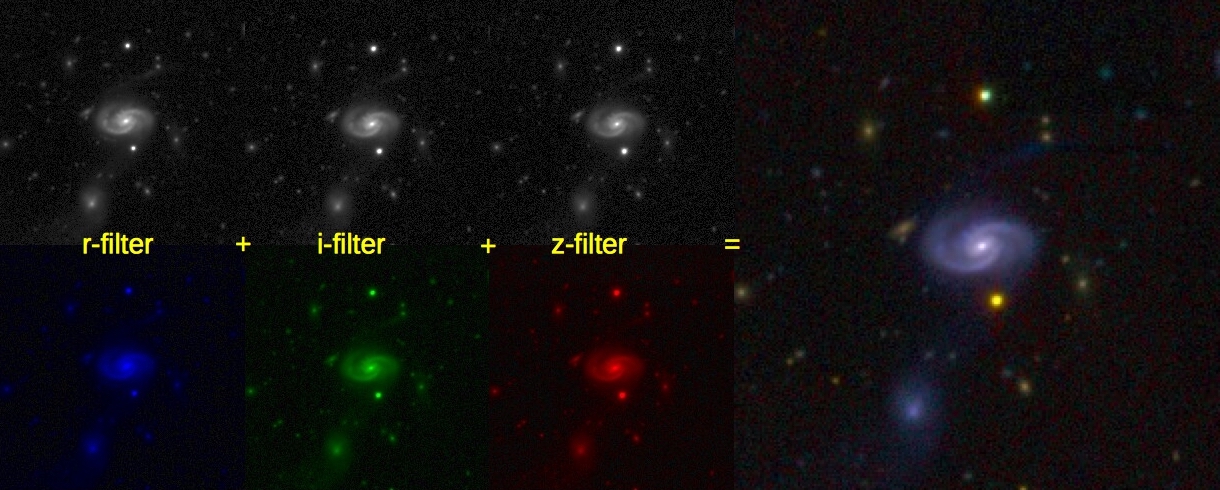Seen here are three images of the same galaxy, taken with the r, i, and z filters. The original images are all black-and-white (above). The brightness of each image gives us information about how much of each type of light we detect from the galaxy – i.e., how “red” an object is, etc. Putting this information together, we can generate a colored image of the galaxy actually looks like. Putting this information together, we can generate a colored image of the galaxy. As some of our filters provide information about non-visible light (i.e. infrared), this image does not show us exactly what the galaxy would look like to our eyes, but gives us a sense of its color relative to the other objects we see.
